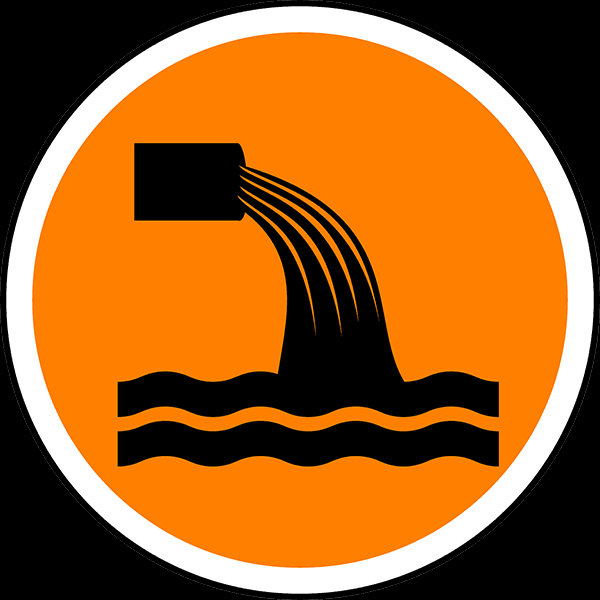What Does Reclaim Waste Mean?
What Does Reclaim Waste Mean?
Blog Article
The Best Guide To Reclaim Waste
Table of ContentsReclaim Waste Things To Know Before You Get ThisThe Of Reclaim WasteNot known Factual Statements About Reclaim Waste How Reclaim Waste can Save You Time, Stress, and Money.How Reclaim Waste can Save You Time, Stress, and Money.
Explore the types, incidents, and types of fluid waste. Residential sewage waste describes the waste and products from a property sewage-disposal tank. This sort of waste is created by people in homes, institutions, and other buildings. This only includes sewage-disposal tanks that have a drain area. The correct administration and disposal of residential sewage waste require fluid waste to be transferred to a sewer treatment plant where the correct techniques and tools are related to cleanse and take care of waste.
Commercial waste frequently includes possible risks, such as combustible materials or a mix of fluid and solid waste items, and requires a much more advanced and thorough disposal process. The disposal of industrial waste generally entails the purification of waste before transport to make sure secure and correct disposal. Industrial waste is developed from by-products and runoff of commercial processes and manufacturing.
This kind of waste can not make use of the same sewer management transportation or procedures as septic or business fluids. The hazardous waste management process requires the assessment and screening of fluid waste prior to it goes through the disposal process (liquid waste disposal melbourne). Runoff waste is the fluid waste that originates from drainage and excess stormwater in very booming locations or cities
Overflow waste can trigger contamination and flooding if not managed properly. Ensuring proper waste monitoring can protect against catastrophes and reduce ecological injury.
Reclaim Waste Fundamentals Explained
Get in touch with PROS Providers today to discover our waste administration and disposal services and the proper means to look after the liquid waste you create.
(https://reclaimwaste1.blog.ss-blog.jp/2024-11-12?1731425991)This so-called 'wastewater' is not only an important resource however, after treatment, will certainly be launched to our land, rivers or the ocean. Used water from toilets, showers, baths, cooking area sinks, washings and industrial processes is recognized as wastewater.

water made use of to cool machinery or tidy plant and equipment). Stormwater, a kind of wastewater, is runoff that streams from farming and urban areas such as roofs, parks, gardens, roads, courses and gutters right into stormwater drains, after rainfall. Stormwater flows unattended directly to neighborhood creeks or rivers, ultimately getting to the ocean.
Our Reclaim Waste Diaries
In Queensland, many wastewater is treated at sewage treatment plants. Wastewater is moved from residential or commercial websites via a system of sewers and pump stations, referred to as sewage reticulation, to a sewage treatment plant. Regional federal governments build, preserve and run most sewage treatment plants. Operators are certified under the Environmental Management Act 1994 to discharge treated wastewater at an acceptable environmental standard into waterways.
The Division of Natural Resources advises city governments about managing, operating and preserving sewerage systems and treatment plants. In unsewered areas, neighborhood federal governments may require owners to set up specific or house sewage treatment systems to deal with residential wastewater from toilets, kitchens, bathrooms and washings. The Department of Natural Resources authorizes the usage of household systems when they are confirmed to be efficient.
Many stormwater obtains no treatment. In some new class, treatment of some stormwater to get rid of trash, sand and gravel has actually begun making use of gross contaminant traps. Wastewater therapy happens in 4 stages: Removes strong matter. Larger solids, such as plastics and various other things incorrectly discharged to sewers, are removed when wastewater is passed through displays.
Makes use of tiny living organisms understands as useful source micro-organisms to damage down and get rid of remaining dissolved wastes and great particles. Micro-organisms and wastes are integrated in the sludge.
Top Guidelines Of Reclaim Waste
Nutrient elimination is not readily available at all sewage treatment plants since it calls for pricey specialised equipment. Clear liquid effluent generated after therapy may still include disease-causing micro-organisms - industrial wastewater treatment.

Most wastewater streams into the sewage system. Under the Act, regional governments carry out authorizations and permits for eco pertinent activities (Periods) involving wastewater launches that could have a regional influence.
Some Known Facts About Reclaim Waste.
Or else, samples are considered research laboratory analysis. Usually numerous examinations are needed to develop the degrees of each of the different pollutants such as oils, hefty metals and chemicals in water. Surveillance provides factual info about water high quality and can verify that permit problems are being fulfilled. The details gotten via monitoring provides the basis for making water quality decisions.
Report this page